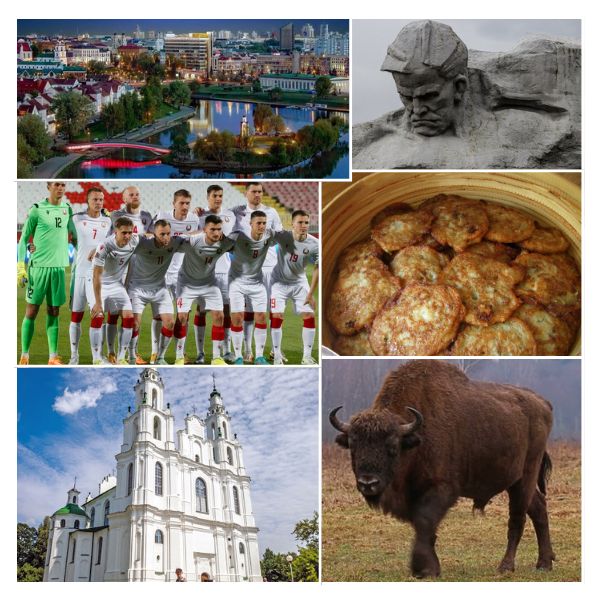
India Belarus Business and Cultural Council

About Belarus
Belarus is a landlocked country in Eastern Europe that borders Latvia, Lithuania, Poland, Russia,
and Ukraine. Belarus is generally flat, and forty percent is forested with marshland. The government
system is a republic in name, although in fact is a dictatorship. The chief of state is the
president, and the head of government is the prime minister. Belarus defines the economic system as
market socialism, but it is most similar to a planned economy in which the central government
directs the economy regarding the production and distribution of goods. Belarus is a member of the
Eurasian Economic Union (EAEU).
Belarus, officially the Republic of Belarus, is a landlocked country in Eastern Europe, bordered
by Russia to the northeast, Ukraine to the south, Poland to the west, and Lithuania and Latvia to
the northwest. Its capital is Minsk; other major cities include Brest, Hrodna (Grodno), Homiel
(Gomel), Mahilyow (Mogilev) and Vitsebsk (Vitebsk). Over forty percent of its 207,600 square
kilometres (80,200 sq mi) is forested, and its strongest economic sectors are service industries and
manufacturing.
Until the 20th century, the lands of modern-day Belarus belonged to several countries, including the
Principality of Polotsk, the Grand Duchy of Lithuania, the Polish–Lithuanian Commonwealth, and the
Russian Empire. In the aftermath of the Russian Revolution, Belarus became a founding constituent
republic of the Soviet Union and was renamed as the Byelorussian Soviet Socialist Republic (BSSR).
Much of the borders of Belarus took their modern shape in 1939 when some lands of the Second Polish
Republic were incorporated into it after the Soviet invasion of Poland and were finalized after
World War II. The nation and its territory were devastated in World War II, during which Belarus
lost about a third of its population and more than half of its economic resources. The republic was
redeveloped in the post-war years. In 1945, the Belorussian SSR became a founding member of the
United Nations, along with the Soviet Union and the Ukrainian SSR.
Objectives

Business Council
To promote bilateral trade between India and Belarus To boost businesses of all the sectors, particularly MSMEs, and create business opportunities To promote businesses of all sizes across the two countries Establish business to business and people to people contact Create tie-ups amongst chambers of commerce and have businesspeople as part of this council.

Cultural Council
To promote cultures and exchange ideas and values through this council Facilitate cultural exchanges in the form of music, dance, history, artifacts, exhibitions, expos and even through online mediums Create opportunities for student exchanges, training and courses to promote cultural relations between India and Belarus To promote artists through shows, exhibitions, etc. either in person or through online mediums.
